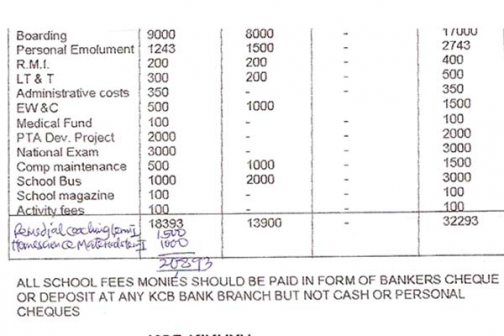
One of the more distressing periods for me is early in the year when school fees season, particularly for Form One students commences. While my secondary school fee-paying season ended long ago, I have since acquired many children along the road of life who maintain my contact with an expensive and thereby oppressive school system.
My experiences every year have left me with the discouraging conclusion that good education in Kenya is now the preserve of the rich and middle class. The struggling masses of poor Kenyans are generally condemned to the poverty cycle without an opportunity to break the poverty trap through this traditional “get out of jail” card.